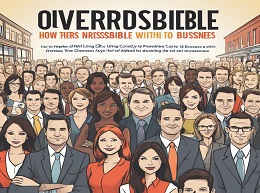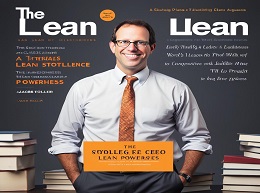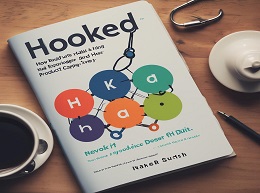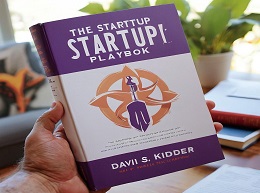Rich Dad Poor Dad
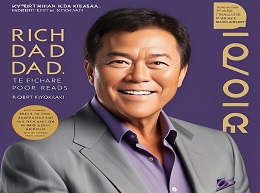
"Rich Dad Poor Dad" by Robert Kiyosaki is more than just a personal finance book it's a manifesto for financial independence and wealth creation. Through captivating storytelling and profound insights, Kiyosaki shares the lessons he learned from his two fathers one biological (his "poor dad") and one a mentor (his "rich dad"). In this comprehensive review, we'll explore the key principles of "Rich Dad Poor Dad," examine real-world examples of its application, and uncover how readers can apply these timeless lessons to achieve financial prosperity.
The Wealth Mindset:
At the core of "Rich Dad Poor Dad" is the concept of the wealth mindset—a way of thinking that distinguishes the wealthy from the financially struggling. Kiyosaki emphasizes the importance of shifting one's mindset from a focus on earning a paycheck to a focus on building assets and generating passive income. By adopting the mindset of the wealthy and embracing opportunities for wealth creation, individuals can break free from the cycle of financial insecurity and build a legacy of abundance.
Example:
Consider the story of Warren Buffett, one of the world's wealthiest individuals. Buffett's investment philosophy is rooted in the wealth mindset he prioritizes long-term wealth accumulation over short-term gains, invests in undervalued assets, and embraces opportunities for compounding returns. Through his disciplined approach to investing, Buffett has amassed a fortune that serves as a testament to the power of the wealth mindset.
The Importance of Financial Education:
"Rich Dad Poor Dad" underscores the critical role of financial education in achieving financial success. Kiyosaki argues that traditional education often fails to teach individuals the fundamentals of money management, investing, and wealth creation. Instead, he advocates for self-education and lifelong learning as the keys to financial literacy and empowerment. By educating themselves about money and investing, individuals can make informed decisions, build wealth strategically, and achieve financial freedom.
Example:
Take the example of Elon Musk, the visionary entrepreneur behind Tesla, SpaceX, and other groundbreaking ventures. Musk's success can be attributed in part to his voracious appetite for learning and self-education. From a young age, Musk devoured books on various subjects, including engineering, physics, and entrepreneurship. This insatiable thirst for knowledge enabled Musk to innovate and disrupt multiple industries, demonstrating the transformative power of financial education.
Building Assets, Not Liabilities:
Another key principle of "Rich Dad Poor Dad" is the distinction between assets and liabilities. Kiyosaki defines assets as resources that put money in your pocket, such as real estate, stocks, and businesses, while liabilities are expenses that take money out of your pocket, such as mortgages, car loans, and credit card debt. Kiyosaki encourages readers to focus on acquiring income-generating assets that appreciate in value over time, rather than accumulating liabilities that drain their financial resources.
Example:
Consider the story of Jeff Bezos, the founder of Amazon and one of the wealthiest individuals in the world. Bezos built his wealth by investing in income-generating assets namely, Amazon stock. Despite facing skepticism and setbacks in the early days of Amazon, Bezos remained focused on building a scalable and profitable business. Today, Amazon's stock holdings constitute the majority of Bezos's net worth, illustrating the power of investing in assets that generate long-term wealth.
Embracing Entrepreneurship:
"Rich Dad Poor Dad" extols the virtues of entrepreneurship as a path to financial freedom and success. Kiyosaki argues that traditional employment offers limited opportunities for wealth creation and financial independence. Instead, he encourages readers to embrace entrepreneurship, take calculated risks, and create their own sources of income. By starting and scaling businesses, individuals can unlock unlimited earning potential, build passive income streams, and achieve true financial autonomy.
Example:
Take the example of Sara Blakely, the founder of Spanx, a billion-dollar shapewear company. Blakely's entrepreneurial journey began with a simple idea to create comfortable and flattering undergarments for women. Despite facing numerous rejections and setbacks, Blakely persevered, bootstrapping her business from the ground up and eventually disrupting the lingerie industry. Today, Spanx is a household name, and Blakely is celebrated as one of the world's most successful self-made female entrepreneurs.
The Power of Leverage:
"Rich Dad Poor Dad" highlights the importance of leveraging other people's time, money, and expertise to accelerate wealth creation. Kiyosaki argues that successful individuals surround themselves with a team of advisors, mentors, and partners who complement their strengths and help them achieve their goals. By leveraging the resources and capabilities of others, individuals can multiply their efforts, minimize risks, and achieve greater success than they could alone.
Example:
Consider the story of Mark Zuckerberg, the co-founder and CEO of Facebook. Zuckerberg's success can be attributed in part to his ability to leverage the talents and expertise of his team. From recruiting top engineers and designers to partnering with investors and strategic partners, Zuckerberg surrounded himself with a talented and diverse team that propelled Facebook to unprecedented heights. This strategic use of leverage enabled Zuckerberg to scale his business rapidly and establish Facebook as the world's leading social media platform.
In conclusion, "Rich Dad Poor Dad" by Robert Kiyosaki is a transformative guide to achieving financial freedom and success. By embracing the wealth mindset, prioritizing financial education, building assets, embracing entrepreneurship, and leveraging the resources of others, individuals can break free from financial insecurity and create a life of abundance. As readers apply the timeless lessons of "Rich Dad Poor Dad" to their own lives, they can unlock their true potential and build a legacy of wealth and prosperity for generations to come.
